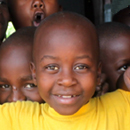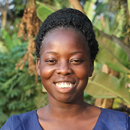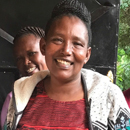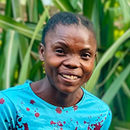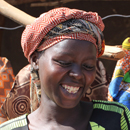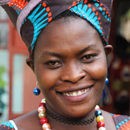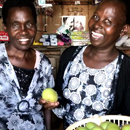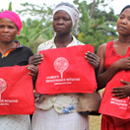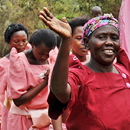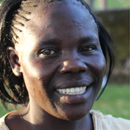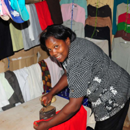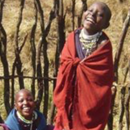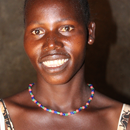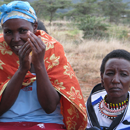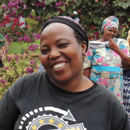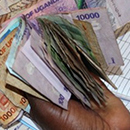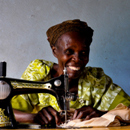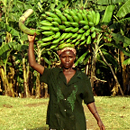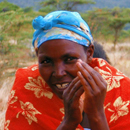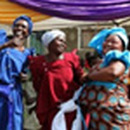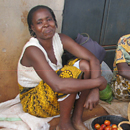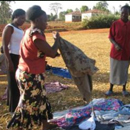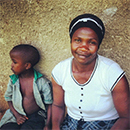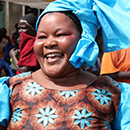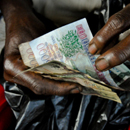Loan Program Results
Each year WMI surveys borrowers to collect data on program impact. During the summer, WMI's college interns analyze the data from loan program participants throughout East Africa to assess how the loans are empowering rural women and improving household living standards.
The WMI loan program levels the playing field and gives women the opportunity to build a business that can generate income to improve household living standards. Year after year the loan program achieves impressive results!
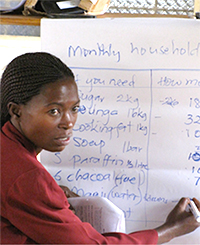
- Incomes increase 100 - 400% after first 6 months
- Savings increase by 500%
- Women prioritize spending their income on education, food and healthcare for their families
- 88% of women in malarial areas buy more mosquito nets
- 75% of women report improved reading, writing or arithmetic skills
- Women in rural Uganda are buying land and building permanent houses
- They are opening bank accounts and using ATM cards
- Domestic violence has decreased - husbands and wives are working together
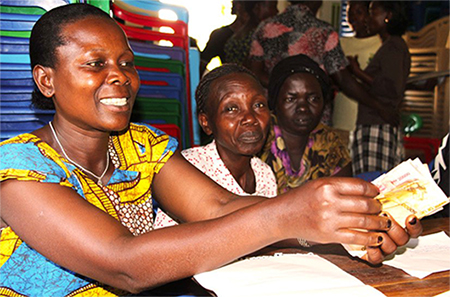
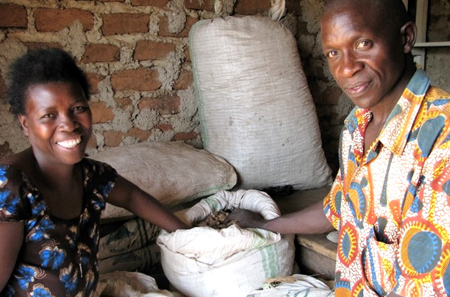
Loan Program Fact Books
Click on the annual WMI fact books to read the details of how the loan program is supporting village women and their families in rural East Africa
Longitudinal Study
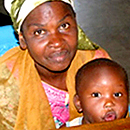
Starting in 2010, village women in the WMI loan program began transitioning to independent banking. WMI has followed the progress of some of the first borrowers in the loan program to see how operating a business has impacted their lives and communities over and extended period of time.
Longitudinal Study: Percentage of Original Borrowers Still In Business (2014)
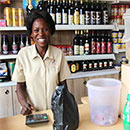
In continuing to follow the progress of the original borrowers in the Loan Program, WMI compiled data on the status of the businesses launched by the first 120 borrowers - those women who received their business loans and training in 2008. The high percentage of these pioneer women entrepreneurs still operating businesses is startling!
Banking Factbook - Part 2 (September 2012)
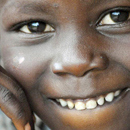
In the summer of 2010, WMI reported the results of a survey of the first 120 women who had transitioned to bank loans after participating in the WMI loan program for 2 years. The report documented the evolution of the successful businesses launched by these original borrowers.
In the summer of 2012, fifty of the original borrowers took part in a follow up survey which continued to track their business operations and improvements in household living standards and children's welfare. Their ongoing success is documented in this report.
Banking Factbook - Part 1 (September 2011)
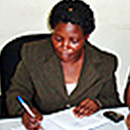
Learn how the graduation to independent banking and larger loans is giving village women more opportunities to expand their businesses and improve their lives. After two years in the WMI loan program the first borrowers have become financially literate and financially autonomous. This report demonstrates the loan program's long-lasting impact on their families and their community.
Research Focus Points
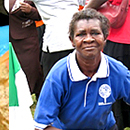
Monthly local coordinator reports provide insight and information into the ways the loan program is changing the lives of borrowers and the ways it is transforming the local communities where it operates. WMI utilized information from the LCRs to review the loan program's impact in four important areas: business operations, health, child development and gender relations.
Business Operations, Health, Child Development, and Gender Relations
Even though WMI provides a loan program, impacts are not limited to improved economic conditions and opportunities. The loan program includes monthly visits to borrowers' businesses by trained Local Coordinators who live in the villages and who are also borrowers. The Local Coordinators review the borrowers' book keeping, inquire about business activities and family welfare, and prepare monthly Local Coordinator Reports (LCRs). The information gathered through the LCRs provides additional insight into the ways the loan program is changing the lives of borrowers and the ways it is transforming the local communities where it operates. WMI utilized information from the LCRs to review the loan program's impact in four important areas:
Village Comparisons

Over a four year period, WMI collected data from women throughout the Buyobo, Uganda area to assess their living standards prior to entering the loan program. This comparison shows how little economic conditions have changed for those who are not involved in the WMI loan program. It also demonstrates the continued need for the village-level savings and loan service provided by WMI.



